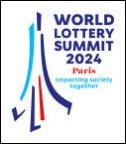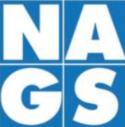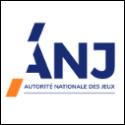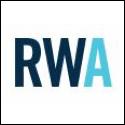Senate Committee Approves Proposal to Tax the Online Sports Betting Market
The rapporteur proposes a 12% tax for companies, and 15% on prizes obtained by bettors.
Brasília (November 22, 2023) — According to local media reports The Senate ‘s Economic Affairs Committee (CAE) approved this Wednesday (22) the project that regulates and taxes the sports betting and online casino market.
Brazilian news portal g1 reported the proposal establishes rules for the operation of betting houses in Brazil and a 12% tax on companies; and 15% on prizes obtained by bettors — below that defended by the Ministry of Finance ( see below ).
The collegiate also approved a request that calls for an urgent vote on the proposal, already approved by the Chamber, in the main plenary of the House. On Tuesday (21), the president of the Senate, Rodrigo Pacheco (PSD-MG), signaled that the project could now be included on the agenda for this Wednesday’s session.
Rapporteur of the proposal, senator Angelo Coronel (PSD-BA) said he believes that the project should only be voted on in plenary next week.
The proposed rules must apply to so-called fixed-odd bets on real sporting events — that is, games in which the bettor knows, at the time of betting, how much he could win if he is right. It is also valid for online gaming events, such as casinos.
The project is one of the Ministry of Finance’s bets to increase the Union’s cash flow next year. The Treasury has articulated the approval of proposals that help achieve the fiscal goal of zero deficit in public accounts in 2024 — without increasing public debt to meet expenses and investments.
The main points of the proposal:
Operating license
When accrediting itself, the company will have to pay for an operating license in Brazil.
According to the text, online betting houses will pay up to R$30 million, depending on subsequent regulation by the Ministry of Finance.
The authorization will be valid for up to 3 trademarks, and for 5 years.
In September, the proposal approved by the Chamber established the same license value, but valid for only one brand, and for up to 3 years.
Angelo Coronel also introduced the possibility for Caixa Econômica Federal, through lottery operators, to become accredited to sell fixed-odd bets in physical and virtual media. Authorization will be granted by the Ministry of Finance.
Taxation
In a change contrary to the wishes of the Ministry of Finance, Senator Angelo Coronel defined, in his opinion, new rates for taxation of the betting market.
The tax burden will be 12% on betting houses; and 15% on prizes obtained by bettors.
The proposed rates are lower than those approved by the Chamber and initially suggested by the economic team of the Minister of Finance, Fernando Haddad. Previously, it would be 18% for sports houses; and up to 30% for premiums for individuals.
The change approved by CAE should impact the Treasury’s initial revenue projection with the proposal (R$700 million next year). Government leader in the House, senator Jaques Wagner (PT-BA) said that the Treasury should carry out new studies and that there was no “controversy” with the reduction in charges.
The rapporteur said he made the change to attract bettors and companies interested in the national market.
In the case of bettors, the charge will only occur once a year and will be through Personal Income Tax (IRPF).
Taxation will only apply to winnings — minus the amount wagered — that exceed the IR exemption table (currently at R$2,112).
The proposal prohibits bettors from:
- under 18 years of age;
- owner, administrator, director, person with significant influence, manager or employees of the bookmaker;
- public agent with duties directly related to regulation;
- person who has or may have access to the betting house’s computerized systems;
- person who has or may have any influence on the outcome of the bet object;
- people provided for in subsequent regulations from the Ministry of Finance;
- and people diagnosed with ludopathy, according to a report from a qualified mental health professional.
Angelo Coronel’s text also determines that the company must adopt identification or facial recognition technology to verify the bettor’s identity.
Awards
According to the proposal, the player will have up to 90 days to redeem the prize. The deadline will be counted from the date of publication of the result.
Half of the “forgotten” prizes will be transferred to the Student Financing Fund (Fies). Another part, to the National Fund for Public Disasters, Protection and Civil Defense (Funcap)
Angelo Coronel included that at least 10% of the resources allocated to Fies must be directed to students from rural populations and original peoples — indigenous and quilombolas.
According to the proposal, prize payments that are under investigation for match-fixing or corruption may be suspended.
Advertising
The project also establishes the creation of rules for advertising campaigns in the sector. The rules will be included in subsequent regulations by the Ministry of Finance.
The text establishes, however, that campaigns will be prohibited:
- for companies that do not have authorization to operate
- displaying unsubstantiated claims about possible winnings from betting
- to present betting as a social attraction
- to broadcast celebrity statements about the benefits of betting
- to suggest that betting is a financial alternative
- of offending cultural beliefs
In the rules that will be created by the Treasury, provisions must be made to include:
- warnings discouraging gambling
- warning about the harm of betting
- informative actions to raise awareness among bettors
- betting addiction prevention actions
- and restrictions on campaign display times and vehicles
Oversight
The text provides that the Ministry of Finance will be responsible for supervising the sector. Among the infractions foreseen is the encouragement of sports fraud.
The proposal establishes some types of punishment for those who break the law, individually or cumulatively:
- warning
- for companies, a fine of 0.1% to 20% of the previous year’s revenue. The maximum value is R$2 billion;
- in cases of individuals or associations that do not carry out business activities, the fine varies between R$50,000 and R$2 billion;
- partial or total suspension of activities for up to 180 days;
- revocation of authorization or prohibition on obtaining new authorization;
- prohibition of carrying out new activities;
- prohibition from participating in tenders for at least five years;
- and being prevented from taking a position in betting companies.
The punishment will depend, for example, on the severity and duration of the infraction, the amount and recurrence.
The approved project also establishes that companies will be required, for example, to adopt security mechanisms to prevent manipulation and use auditable systems, which can be accessed in real time by the Ministry of Finance.
The bookmaker must also create mechanisms to monitor suspected money laundering and terrorist financing, and report suspicious operations to the Financial Activities Control Council (Coaf).
Furthermore, there is an obligation to create mechanisms to protect bettors and betting addiction.
Under the proposal, all players will be guaranteed the rights provided by law for consumers. They must also be provided with information and guidance:
- about rules and requirements for awards
- and about risks of losses and gaming addiction
Initially, Angelo Coronel’s opinion provided, at the request of the Ministries of Finance and Ports and Airports, a device to extend, for 5 years, the tax exemption program for investments in port infrastructure, called Reporto.
The initiative ends in December this year.
After protests from the opposition, the government accepted that the leader of the PL in the Senate, Carlos Portinho (RJ), presented a separate project of the same content.
According to the text, which will go to the Chamber, the program can continue until December 31, 2028.
SOURCE: Brazilian news portal g1



























